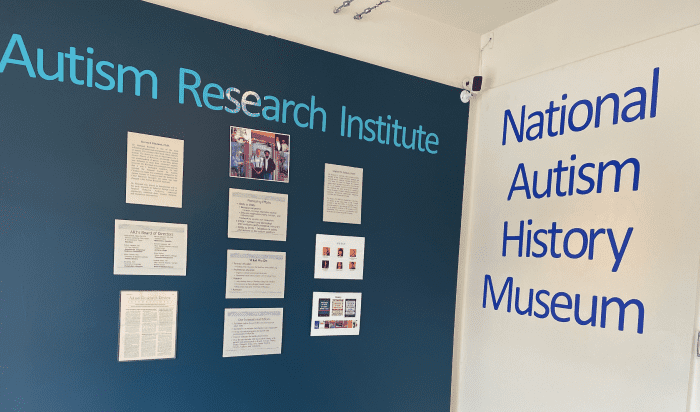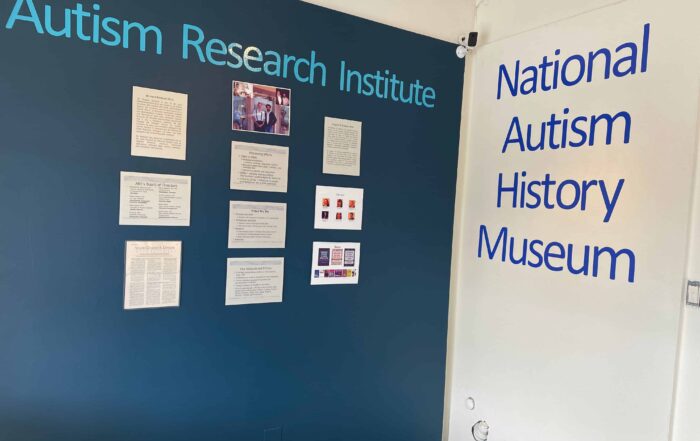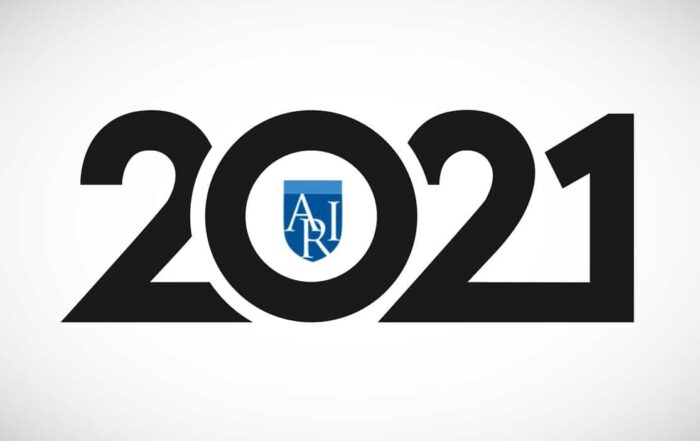Dr. Rimland’s Vision | Why an Autism History Museum? | What to Expect | Hours
The Autism Research Institute (ARI) is proud to announce the opening of the National Autism History Museum. This groundbreaking museum offers an engaging and comprehensive look at the prolific history of autism research and discovery. It showcases significant scientific breakthroughs and milestones over the last century that fundamentally changed how we understand and treat autism. This includes interactive exhibits, lesser-known yet significant facts, and a growing collection of historical artifacts. As such, the museum promises to be a valuable resource for anyone interested in autism, its history, and its impact on our society.
Watch a 5-minute virtual tour of the museum.
Since its founding in 1967, ARI has driven and documented significant paradigm shifts in autism research and understanding. By drawing on his expertise and other leaders in the field, Dr. Stephen M. Edelson, Executive Director of ARI, set out to display the rich history of autism diagnosis, treatment, and acceptance. Pivotal historical events were laid out in a timeline based on his more than 45 years of experience in the field. Dr. Bernard Rimland collected many of the artifacts on display during his pioneering career in autism research. Researchers who have participated in groundbreaking studies worldwide have generously donated other artifacts to the museum. As we collect historical artifacts like original research papers, laboratory equipment, and clinical records, the museum will develop a repository, ensuring their preservation and accessibility to future generations.
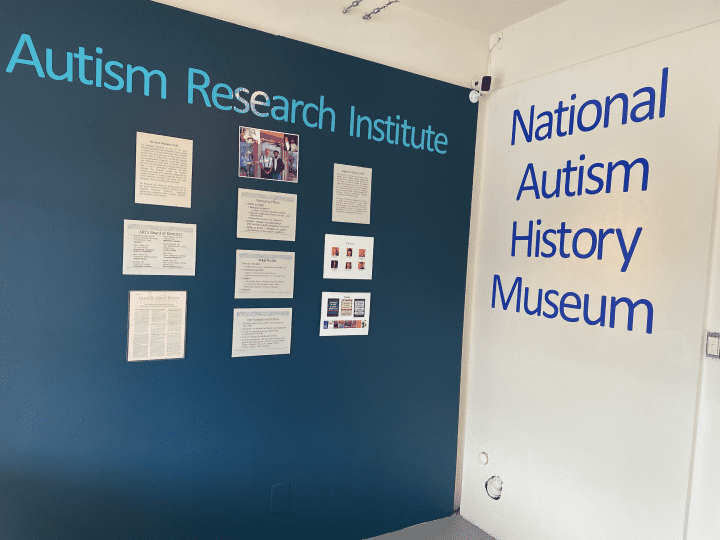
Displays and stories on exhibit at the museum aim to remind guests how far we have come since the first description of autism in 1925. By realizing how things have changed and what it took to drive those changes, guests may leave with a better understanding of how we got here and where we might be going. The key is to open people’s minds to understanding the past and using that to understand our future.
“They often say you have to know the past to understand the future. So I think [this museum] could give people some insight into the direction this is all going.”
Dr. Stephen M. Edelson, Interview, 2023
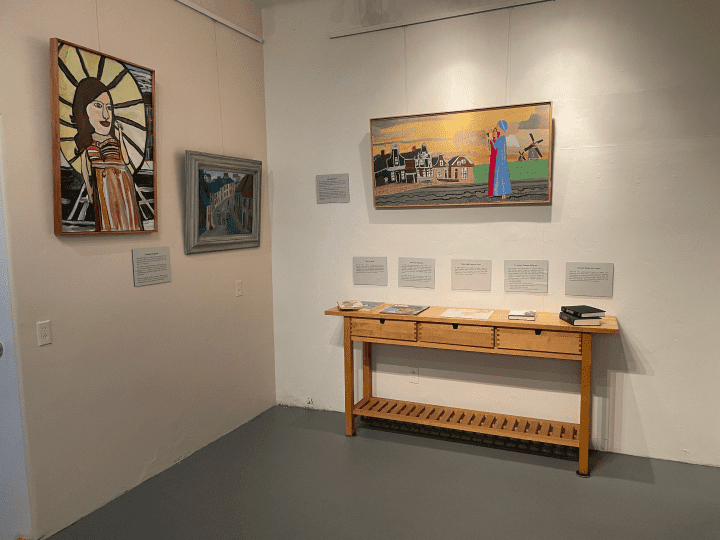
What to expect
The four-room museum is located in the Kensington district in San Diego, California, adjacent to ARI’s main office. Items on display include artifacts from pivotal research discoveries and information about essential leaders and social changes. One such artifact is the very first issue of the Journal of Autism and Childhood Schizophrenia. Guests can learn that Dr. Leo Kanner was the first journal editor and that it was later renamed the Journal of Autism and Developmental Disorders, which remains a leading source for research and clinical insights. QR codes are also available throughout the museum, providing more detailed information about people and discoveries on display via audio and video recordings.
At the wall describing autistic savants, visitors can watch a video of Mark Rimland, an autistic adult, as he explains his remarkable ability in calendar memory. As visitors view an original and still sealed VHS tape of Rain Man, they can learn how Dr. Rimland’s input on the movie script changed Dustin Hoffman’s character from someone intellectually challenged to having autism.
The museum aims to be as interactive as possible. Aside from QR codes and audio tours, it also provides books to touch and read. Other interactive displays include the galley proof of Dr. Temple Grandin’s most famous book, Thinking in Pictures, and timeline banners that map major historical events from the first description by a Ukrainian clinical researcher in 1925.
Several researchers involved in landmark studies have agreed to send related artifacts to exhibit in the museum. The museum has already received a monitor from Dr. Beth Mallow’s classic sleep study and is planning to receive brain tissue slides from Drs. Thomas Kemper and Margaret Bauman’s pioneering research documenting structural impairment.ARI is in contact with researchers across the globe, and the museum is set to receive many more artifacts!
“With the artifacts that we’ll be collecting over the years, it’s going to turn into something really special.”
Dr. Stephen M. Edelson, Interview, 2023
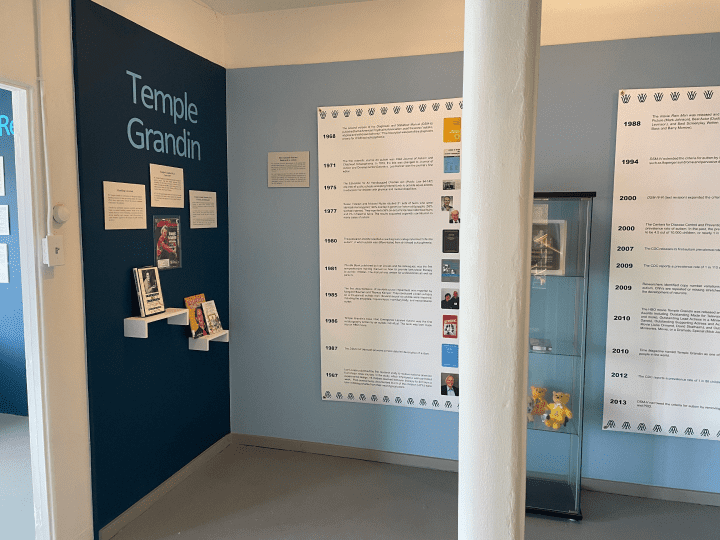
Plans for the Future
In an effort to increase accessibility and inspire collaboration, ARI is considering the creation of traveling museums. These smaller pop-up locations would offer condensed timelines of autism research, trivia boards, interesting artifacts, and classic books on the subject.
Historical insights and items displayed in the museum will be periodically highlighted in the Autism Research Review International. As more artifacts arrive from researchers across the globe, the displays and information will evolve to more clearly reflect the diversity and collaboration innate to autism research and advocacy. The National Autism History Museum is honored and excited to advance autism understanding and acceptance further. As more artifacts are preserved, and stories are told, our shared future will become more evident.
“The future of autism is about building a more inclusive, accepting society that values diversity and recognizes the strengths and abilities of people with autism.”
Dr. Bernard Rimland, National Autism Conference, 2002
Visitor Information
Hours: Monday-Thursday, 10 a.m. to 12 Noon or by appointment.
To schedule a visit:
email – NationalAutismHistoryMuseum@autism.org
or call – (619) 537-9211
Address
4186 Adams Ave,
San Diego, CA 92116
Introducing the National Autism History Museum – Part 2
Dr. Rimland's Vision | Why an Autism History Museum? | What to Expect | HoursWhy an autism history museum?Museums serve as foundations that preserve and illuminate periods in our collective past. They educate and
ARI: Advancing our Understanding of Autism
Established in 1967, the Autism Research Institute (ARI) is the world's longest-standing organization dedicated to autism research. For more than half a century, we’ve worked to improve the quality of life for
Introducing the National Autism History Museum – Part I
Dr. Rimland's Vision | Why an Autism History Museum? | What to Expect | Hours Highlighting Bernard Rimland’s Vision and Contributions to the Autism Field To mark nearly a century of written history
ARI’s Global Networks
ARI and Autism Research The Autism Research Institute (ARI) was established in 1967 and is the oldest autism research organization in the world. Its founder, Dr. Bernard Rimland, was a pioneering researcher
ARI’s Accomplishments in 2021
For more than five decades, we have been challenging the traditional view of autism as an untreatable disorder and have advanced research to improve the health and well-being of people on the autism
ARI’s Accomplishments in 2020
The Covid-19 pandemic upended many lives, and the need to provide meaningful support while sustaining research has been as important as ever. While the causes of ASD remain unclear, recent scientific advances challenge


